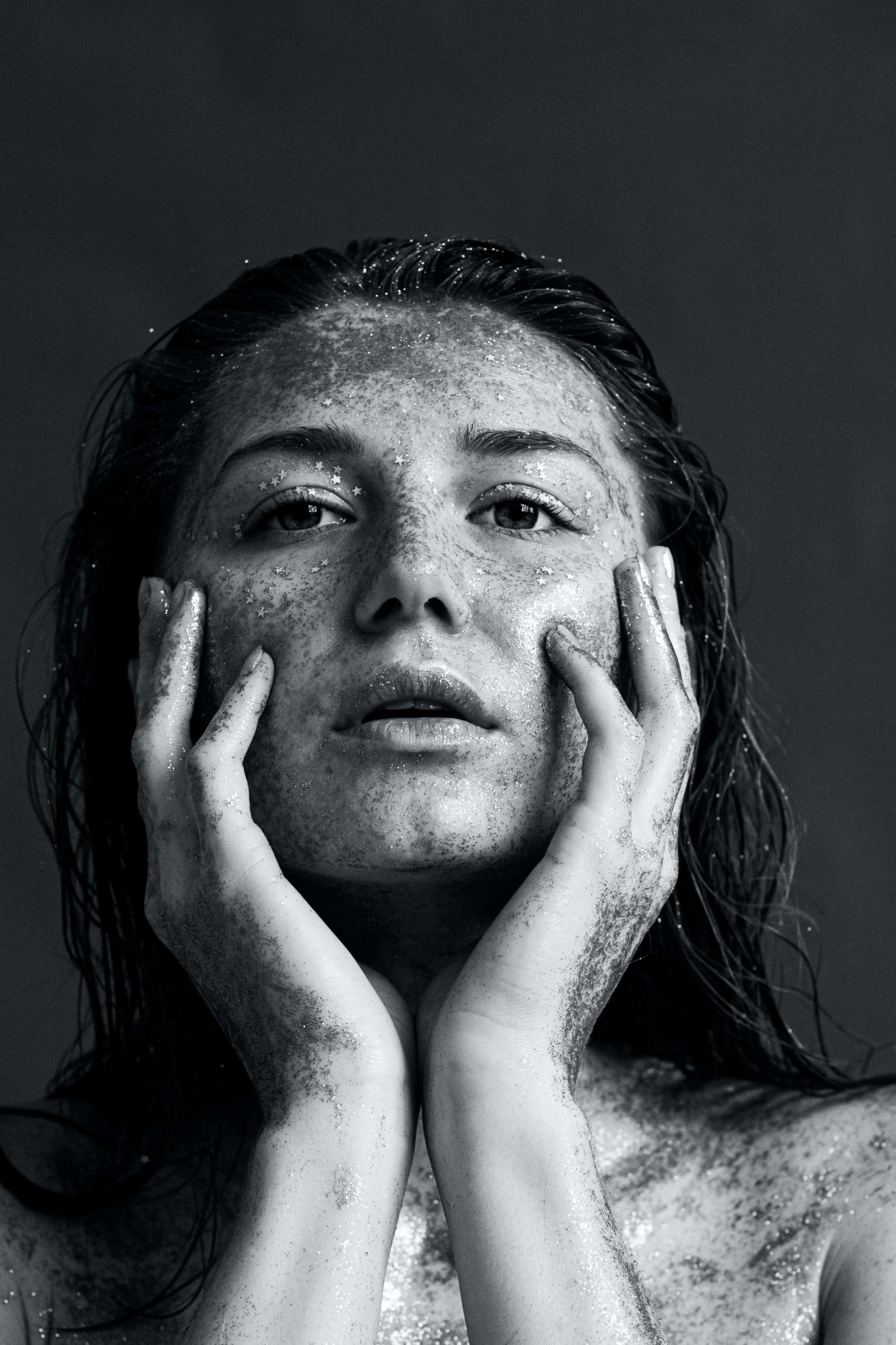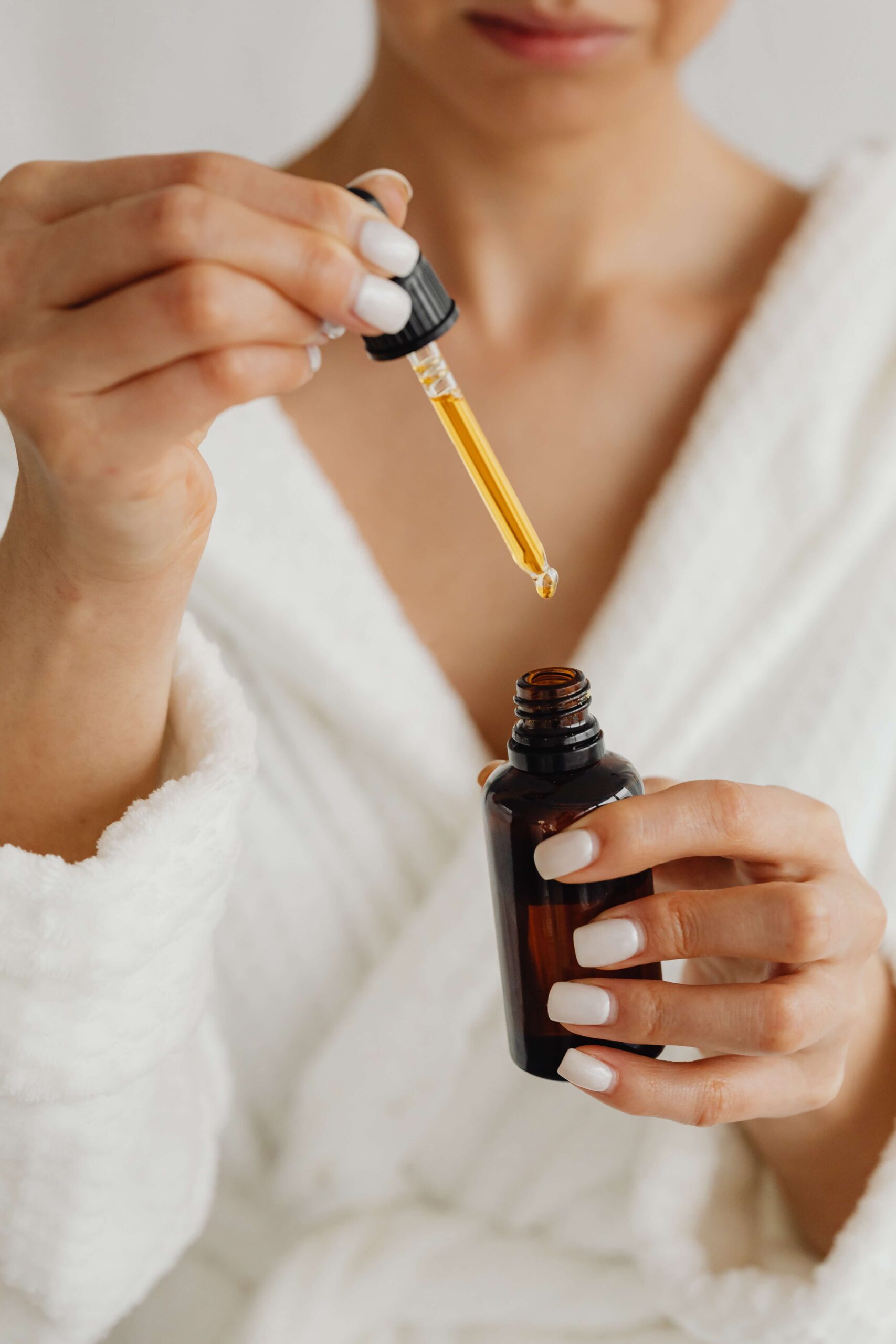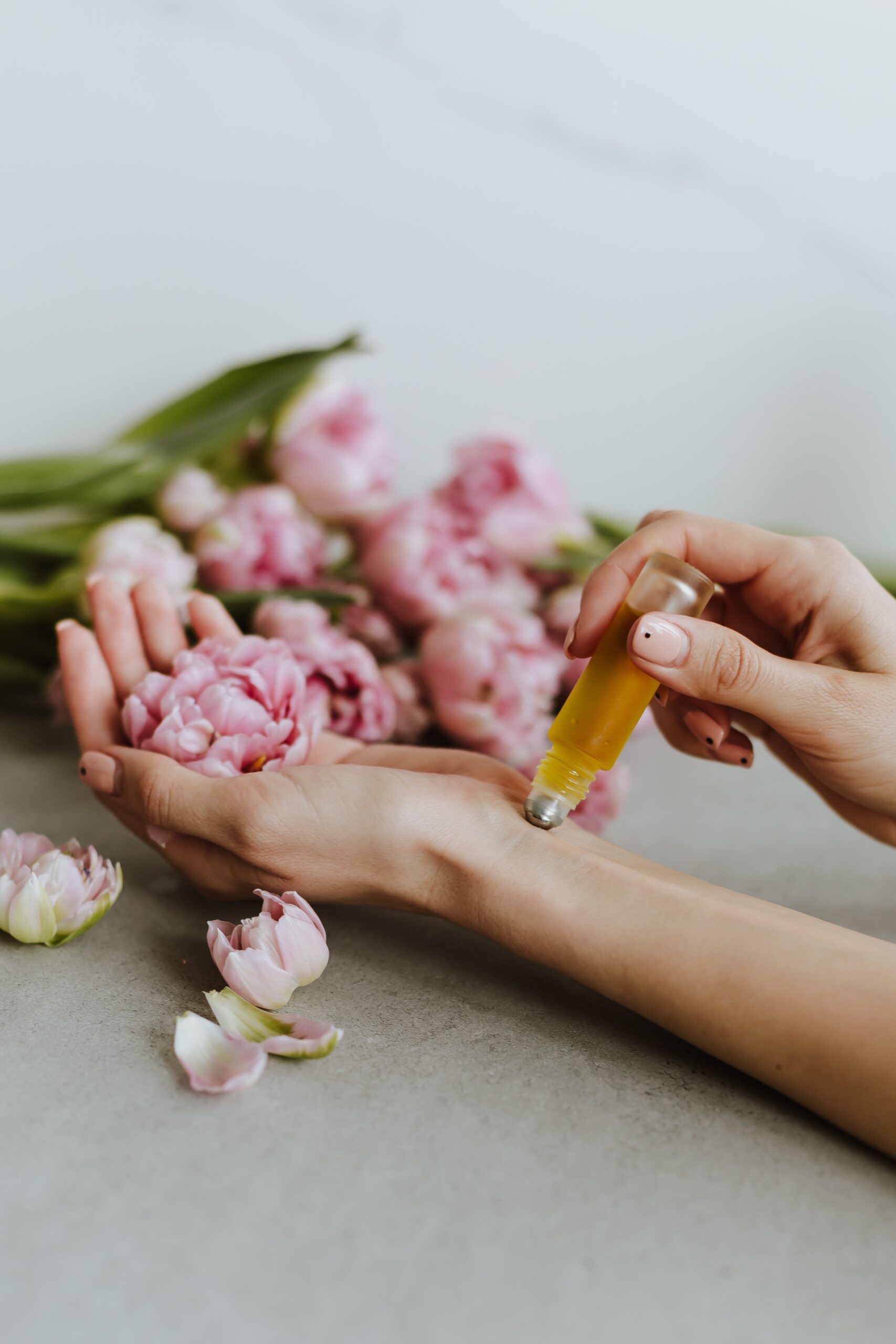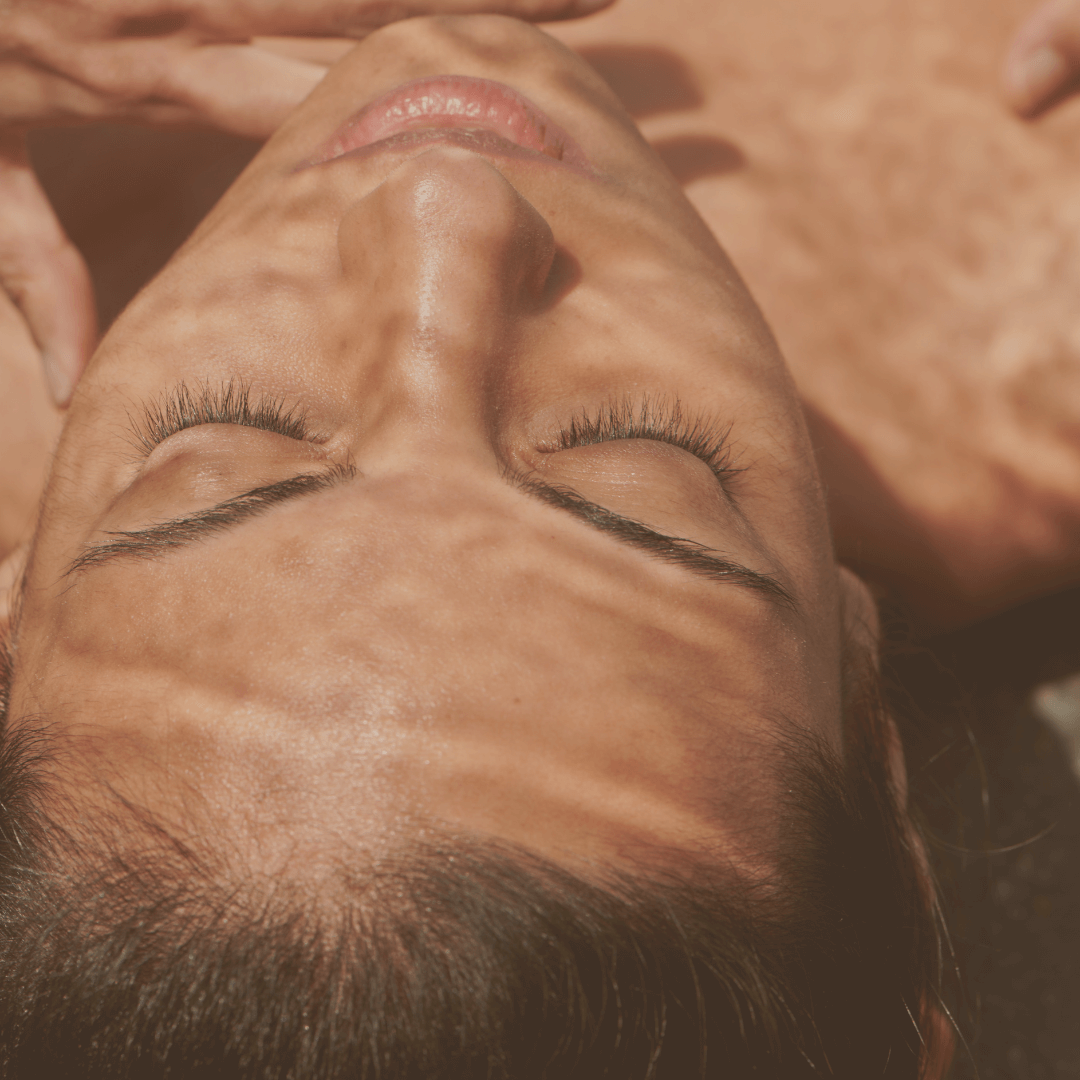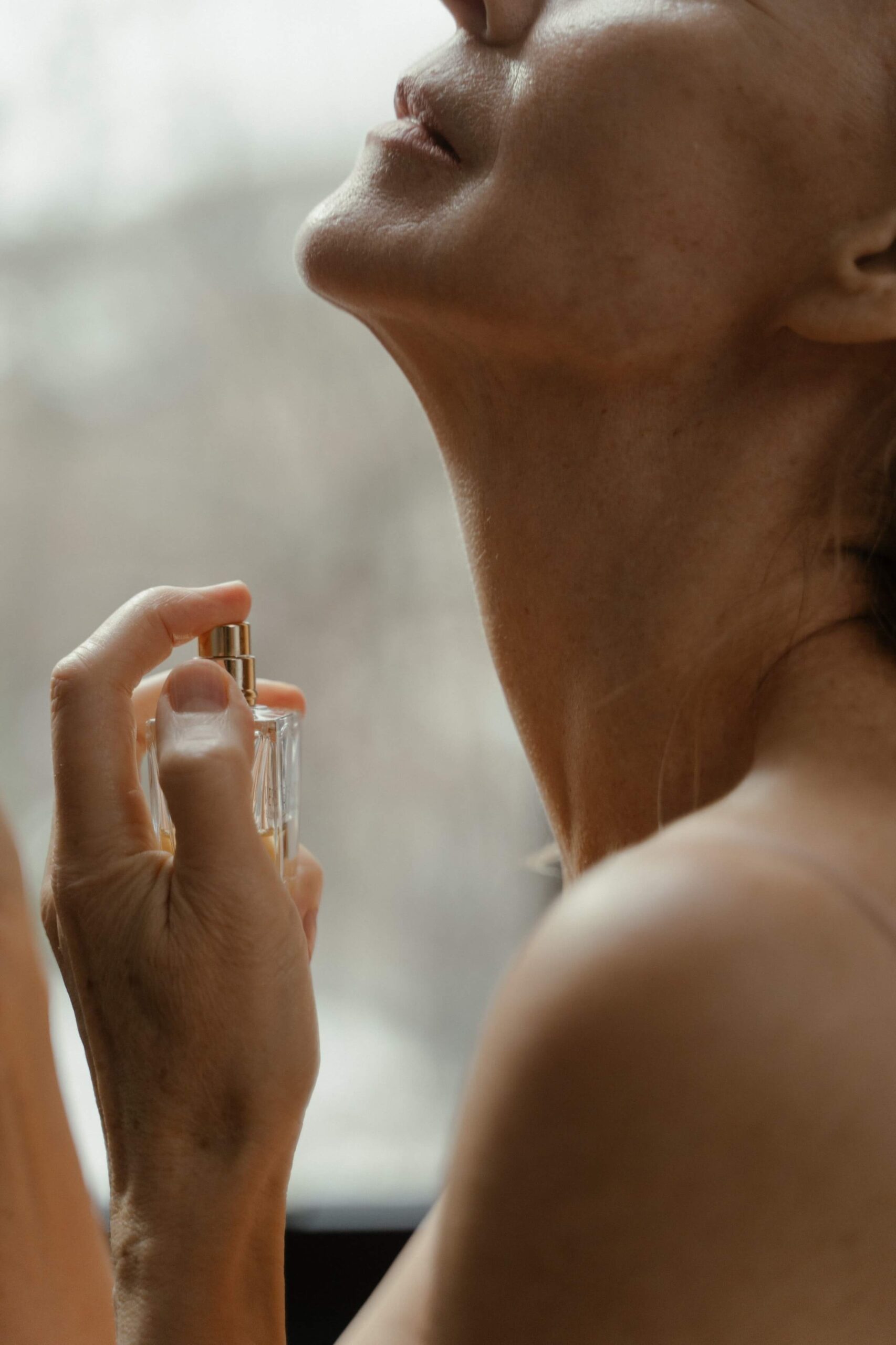Knowing your skin type is an essential part of a supportive skincare routine. This knowledge of your skin allows you to recognize what it needs from you. Then, you can find and use skincare products more attuned to those needs.
Every skin type is different. Each has its own characteristics. They are determined based on a variety of factors, including oil production, hydration, and sensitivity level.
Some skin types need products that do not support other skin types. This is why it is so imperative you determine your skin type. Today, I’m sharing knowledge of the different skin types, and what products I recommend to support each type.
5 Different Skin Types
Dry
Dry skin is caused by under-production of sebum, our skin’s natural oil. There are various signs of dry skin. One such sign is skin feeling tight or rough after washing your face. Dry skin may appear less elastic, and fine lines may be more prominent.
If you have dry skin, you may notice that it feels dry, like it needs to be moisturized more often. Another sign of dry skin is that it feels itchy or flaky.
Dry skin tends to be seeking hydration. This is why it is essential to moisturize often with products intended to hydrate. Other products may dry out your skin further.
Cleansers and facial soaps may have ingredients that could cause a negative reaction. You may be able to cleanse your face using water alone. Otherwise, I like to recommend a gentle cleanser, like Josh Rosebrook Herbal Infusion Oil. You can find more gentle cleansers in my shop.
Different ingredients provide hydration in different ways. Some ingredients are considered humectants. These humectants draw water to the skin. Three popular humectants that can support your skin are hyaluronic acid, alpha hydroxy acids (AHAs), and glycerin.
Other ingredients used can actually be found in your skin’s natural barrier. These ingredients help that barrier keep water in your skin, as well as protect your skin from irritants. Look for ceramides and fatty alcohols.
You can also stimulate your skin’s natural sebum production through facial massage. Gentle facial massage provides stimulation to the sebaceous glands, which increases sebum production.
Oily
The oily skin type, on the other hand, overproduces sebum. This can cause skin to appear shiny, oily, or greasy. Skin may be especially oily in the T-zone, which is the forehead, nose, and chin area.
If you have oily skin, you may notice more blemishes and clogged pores. Emollients or certain hydrating products tend to increase these issues. This is why it is so important to use products designed for your skin type. Oily skin still needs hydration to be at its healthiest, but it needs lightweight hydration that will not clog pores.
This skin type also requires a gentle touch. It may be tempting to try to dry your skin out, but this may actually increase your skin’s oil production. Using harsh products that strip the skin’s natural barrier and create an alkaline surface, can cause damage to your skin.
Look for a gentle cleanser to use to wash your face. The best cleansers for high oil production are gently exfoliating cleansers or cream cleansers. If you have an oily skin type, salicylic acid is a great option. This acid is actually the major metabolite in aspirin. It holds similar anti-inflammatory properties to aspirin and is antibacterial. It can help clear the skin of bacteria and irritants.
Then, use a non-comedogenic moisturizer to moisturize the skin. Non-comedogenic means it does not contain ingredients likely to clog pores.
*Please note that oil-free and non-comedogenic are not the same. Oil-free products simply have no oil but could contain other irritants for oily skin. Some oil-free cleansers will contain irritants, so it’s important to pay attention to how your skin reacts.
Normal
Normal skin tends to be blemish-free. Generally, this skin type has skin that feels balanced, well-hydrated, and calm. There is no significant shine or roughness to the skin. If you have this skin type, you may notice you have small pores. Your skin likely feels smooth and soft.
Of course, it is necessary to take care of this skin type just as it is important with the other skin types. Poor skin care can result in damage to the skin. Your skin’s microbiome needs support to keep you glowing and healthy.
AHAs like lactic acid are great for this skin type. Lactic acid acts both as a gentle exfoliant and a humectant. This helps clear the skin of old skin cells. It also draws water to the skin to keep it hydrated. You also want to support your skin’s natural barrier with ceramides or fatty alcohols. This helps keep the moisture in your skin.
Combination
The combination skin type refers to skin that has different skin types in different areas. You may have oily-dry combination skin, where the skin is oily in the T-zone, but you have dry cheeks. You may have normal-oily combination skin, where it is oily in some areas and normal in others.
This skin type often experiences fluctuations. It is more likely to be impacted by the change in seasons or a change in your hormones.
Because of this, you will want to know how hormones affect your skin. Congestion, dryness, dehydration, oil imbalances, and acne can all be a result of hormone fluctuation. Stabilizing your hormones is likely a foundational part of balancing this skin type. I like to start with the three S’s: stress, sugar, and sleep. Being conscious of these three factors and how they affect your skin is the first step to a balanced complexion.
As with other skin types, gentle cleansing and hydration are necessary to maintain a healthy glow. Cleansers with salicylic acid, a beta hydroxy acid (BHA) will clear the skin of impurities and penetrate deeply into the skin, removing excess dead skin cells. Hyaluronic acid and AHAs will help draw water to the skin to keep it hydrated. Ceramides will help buff up your skin’s natural barrier to keep the water in as well.
Niacinamide is also a nourishing ingredient for this skin type. Niacinamide is a form of vitamin B3, which helps brighten the complexion. It can also support hydration and has anti-inflammatory effects.
Sensitive
Sensitive skin types are any of the above skin types with heightened sensitivity. No matter the type of skin, those with sensitive skin may find their skin to feel itchy or burning. It may appear red as well. This skin type is likely to be easily irritated in response to hormone fluctuations as well as environmental factors.
Those with a sensitive skin type may notice specific triggers for flare-ups in sensitivity. These triggers can include specific irritants such as fragrances or dyes. Different foods can also be a potential trigger.
This skin type may require some trial and error to determine what works best. While the above ingredients work best for each skin type respectively, some may be a trigger for you personally. Discovering what works and what triggers flare-ups will give you more agency to keep your skin balanced.
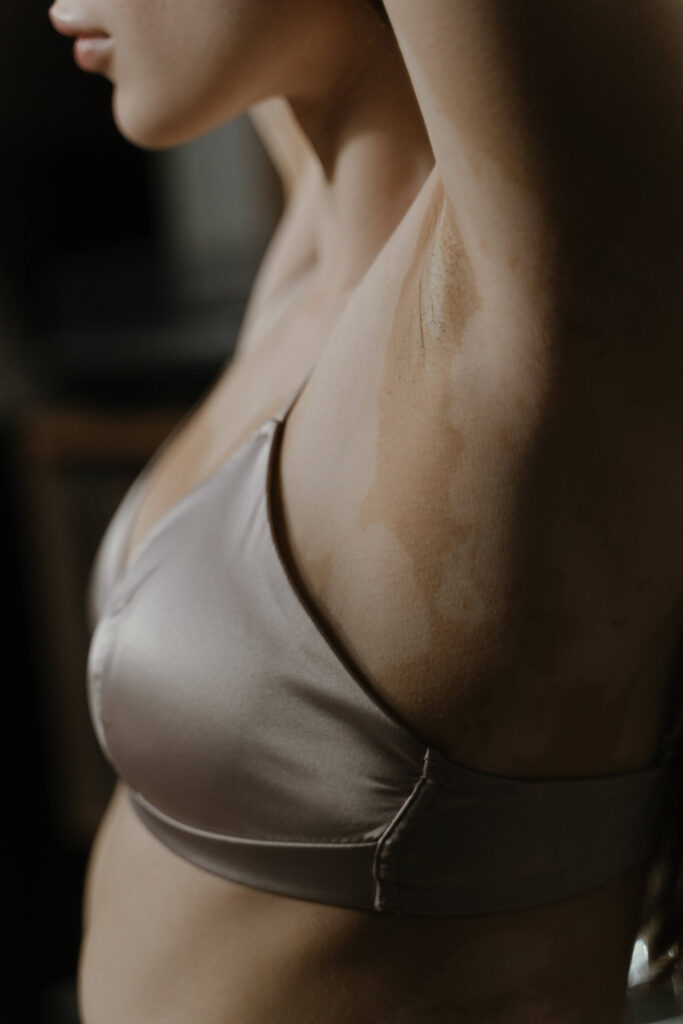
Best Products for Dry Skin
PlantGenius Creamy Bubbling Cleanser
This creamy cleanser contains glycerin, AHAs, and fatty alcohols, making it an ideal gentle cleanser for dry and dehydrated skin.
Please note that using AHAs/BHAs can make you more sensitive to sun exposure. For this reason, always apply a broad-spectrum sunscreen after use.
Osea’s Hyaluronic Sea Serum
This serum contains both hyaluronic acid and glycerin, two key humectants. This combination will draw water to the skin. This clean product is best used on dry skin.
CV Skinlabs Calming Moisture for Face, Neck, & Scalp
This lightweight moisturizer is packed with glycerin and fatty alcohols as well as anti-inflammatory turmeric to calm and soothe dry skin.
Best Products for Oily Skin
Marie Veronique Daily Exfoliating Cleanser
This cleanser is an AHA/BHA cleanser formulated with lactic acid and adzuki powder. This combination gently exfoliates the top layer of skin, while loosening dead skin cells deeper in the skin.
Please note that using AHAs/BHAs can make you more sensitive to sun exposure. Always apply a broad-spectrum sunscreen after use.
Paula’s Choice RESIST Daily Pore-Refining Treatment 2% BHA
This water-based formula is a daily leave-on exfoliator. The BHA in this treatment is salicylic acid, which gently exfoliates the skin by penetrating deeply to clear away dead skin cells and irritants clogging pores.
Tata Harper Clarifying Moisturizer
Designed to target blemishes, this moisturizer can help clarify your complexion.
Best Products for Normal Skin
OSEA Ocean Cleanser
This cleanser is formulated with lactic acid, an AHA that can draw water to the skin.
Plankton + PHA Flower Acid Algae Serum
This retexturizing serum contains lactic acid as well as polyhydroxy acid to stimulate cell renewal.
Alo Luminizing Facial Moisturizer
This moisturizer soothes and hydrates with glycerin and aloe as key ingredients.
Best Products for Combination Skin
Aquarius Pore Purifying Clarity Cream
This cream contains BHA white willow bark, which allows it to penetrate deeply into the skin to clear pores. It also moisturizes with glycerin and fatty alcohols.
Best Products for Sensitive Skin
Indie Lee Cleansing Balm
This balm begins crystal clear and then turns into a milky cleanser. Milky cleansers are effective yet gentle cleansers on the skin.
Graydon Fullmoon Serum
This hyaluronic acid serum hydrates the skin. It is suitable for all skin types including sensitive skin.
SOS Daily Barrier Recovery Cream
This daily moisturizer was formulated with sensitive skin in mind. It includes hyaluronic acid (a humectant) and ceramides to seal in moisture.
Determining your skin type will help you support your skin best.
Knowing what ingredients will best help you and your skin make it so much simpler to create a daily minimalist skincare routine. To find more clean products to support your skin, check out my shop.
Interested in learning more about your skin? Join The Beauty Collective, where I teach you how to achieve healthy and radiant skin using holistic skincare and lifestyle practices.

